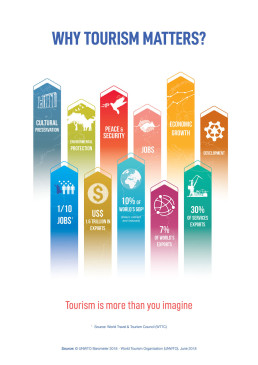
The Hospitality & Entertainment Industry is a Vast and Diverse Sector. The Hospitality & Entertainment Industry is a Vast and Diverse Sector.The Hospitality & Entertainment Industry is a Vast and Diverse Sector. The Hospitality & Entertainment Industry is a Vast and Diverse Sector.
text
The Hospitality and Entertainment Industry is a vast sector that encompasses a wide range of businesses, including hotels, restaurants, bars, nightclubs, casinos, amusement parks, and sports venues, among others. It is a highly competitive and dynamic industry that plays a significant role in the global economy, generating millions of jobs and contributing trillions of dollars to GDP each year. The industry faces several challenges, including changing consumer preferences, rising labor costs, and new technologies disrupting traditional business models. However, it also presents several opportunities for growth, including the rise of personalized experiences, the adoption of new technologies, and the increasing demand for sustainable and socially responsible businesses.
The hospitality and entertainment industry is a vast and diverse sector that encompasses everything from hotels and restaurants to casinos and amusement parks. It plays a significant role in the global economy, generating millions of jobs and contributing trillions of dollars to GDP each year. In this article, we’ll explore the different facets of the hospitality and entertainment industry, its challenges and opportunities, and the latest trends shaping its future.
Overview of the Hospitality and Entertainment Industry
The hospitality and entertainment industry is a vast and multifaceted sector that comprises a wide range of businesses, including hotels, restaurants, bars, nightclubs, casinos, amusement parks, and sports venues, among others. It is a highly dynamic and competitive industry that is constantly evolving to meet changing consumer needs and preferences. According to the World Travel and Tourism Council (WTTC), the hospitality and tourism industry is one of the world’s largest employers, supporting over 300 million jobs and contributing over 10% of global GDP.
Hotels and Accommodation
One of the core sectors within the hospitality industry is hotels and accommodation. The hotel industry is highly competitive, with a range of players from budget to luxury hotels, each offering different levels of service and amenities. In recent years, the rise of online booking platforms like Booking.com and Expedia has disrupted the industry, enabling customers to easily compare prices and book accommodation directly. This has put pressure on hotels to differentiate themselves by offering unique experiences and services to stand out in a crowded market.
Restaurants and Food Service
The food and beverage (F&B) sector is another essential segment of the hospitality industry. Restaurants and food service businesses range from small cafes and food trucks to high-end fine dining establishments. The industry is highly competitive, with trends shifting towards healthier and more sustainable food options. In recent years, the rise of food delivery services like Uber Eats and DoorDash has disrupted the traditional restaurant model, giving customers more convenience and choice but also putting pressure on restaurants to adapt to new business models.
Entertainment and Recreation
The entertainment and recreation sector is a vital part of the hospitality industry. It includes a range of businesses, such as movie theaters, amusement parks, casinos, and sports venues, among others. The sector is highly competitive, with a wide range of players offering different experiences to attract customers. In recent years, the rise of immersive experiences and virtual reality has transformed the industry, with more businesses offering interactive and engaging experiences that go beyond traditional entertainment.
Challenges Facing the Hospitality and Entertainment Industry
The hospitality and entertainment industry faces several challenges, including changing consumer preferences, rising labor costs, and new technologies disrupting traditional business models. One of the biggest challenges facing the industry is the increasing pressure to offer personalized experiences and cater to the unique needs of individual customers. With the rise of social media and online reviews, customers have become more discerning, and businesses must work harder to differentiate themselves and stand out in a crowded market.
Another significant challenge facing the industry is rising labor costs. With a highly competitive job market, businesses must offer attractive compensation packages to attract and retain employees. This can put a strain on profit margins, especially for small and medium-sized businesses that may not have the same economies of scale as larger companies.
Finally, new technologies like artificial intelligence, virtual reality, and robotics are disrupting traditional business models and changing the way customers interact with businesses. For example, chatbots and AI-powered customer service platforms can provide 24/7 support to customers, reducing the need for human customer service representatives. While these technologies can offer significant benefits to businesses, they also require significant investment and can be a barrier to entry for smaller players in the market.
Opportunities in the Hospitality and Entertainment Industry
Despite the challenges facing the industry, the hospitality and entertainment sector also presents several opportunities for growth




